- Published by:
- Department of Education
- Date:
- 7 June 2023
The Early Childhood Update e-newsletter is sent to early childhood teachers and workers, but is open to anyone interested in best practice in early years education and evidence-based teaching approaches. Subscribe here to receive the e-newsletter.
Budget news for early childhood education in Victoria
The Victorian Budget 2023/24 continues to generational investment in early childhood education and care, to give every child the best possible start in life.
Dear early childhood education and care services,
You may have seen media reporting that the Victorian Budget 2023/24 continues generational investment in early childhood education and care, to give every child the best possible start in life.
The budget sets out an additional investment of more than $1.8 billion over 5 years in early childhood education and Pre-Prep. This builds on our existing $4.4 billion investment to deliver the Best Start, Best Life reforms, including Three-Year-Old Kinder, which will transform early childhood education.
The budget also funds practical supports to improve access, participation and inclusion. This new funding includes $1.2 billion to lock in the infrastructure development we need, as we continue our progress towards 15 hours of Three-Year-Old Kindergarten by 2029 and delivering 30 hours of Pre-Prep each week for every 4-year-old child by 2032.
The key areas for the budget investment in early childhood education are:
- $546 million to support the continued roll-out of the Best Start, Best Life reforms, including Three-Year-Old Kinder and the ongoing provision of Free Kinder
- $28 million to support language learning in early childhood services
- $20 million to provide every service with grants for toys and equipment, create 8 new toy libraries, support existing toy libraries, and fund Bush Kinder programs
- $18 million to expand supports to young children with disability, developmental delay and additional needs.
This budget is a mix of record investment for the future and strong support for existing and new programs and initiatives. Combined, the budget recognises the remarkable contribution the early childhood sector makes to our state. It also highlights our commitment to working closely with services and partners to deliver our transformative reforms.
Beyond the budget, a few quick and practical reminders from me.
- Mid-year enrolments for study in early education are now open. The department continues to offer financial support of up to $34,000 through our Early Childhood Scholarship and Early Childhood Aboriginal Pathway Scholarship programs, and I encourage you to share this opportunity with people you know, because growing our best workforce is an opportunity for all of us.
- With many in the sector now working on enrolments for 2024 programs, it’s timely to remind services and providers that enrolment processes must use the Priority of Access Guidelines. On our website you can find a full list of the criteria that must be used by service providers when prioritising enrolments. You can also contact the department's regional offices for support and funding guidance.
- If your service’s circumstances change, it’s important that we work together immediately to explore options to assist your service to continue meeting funding conditions and quality of service. Please contact the department if there are any changes to the conditions that we use to determine funding – this is crucial to ensuring your service receives the correct amount of funding.
Thank you from us, too, for your professionalism and everything you continue to do to support Victoria’s children, families and communities.
Kim Little
Deputy Secretary
Early Childhood Education
Bachar Houli campaign promotes Free Kinder 2024
Partnership taps into culturally and linguistically diverse communities.
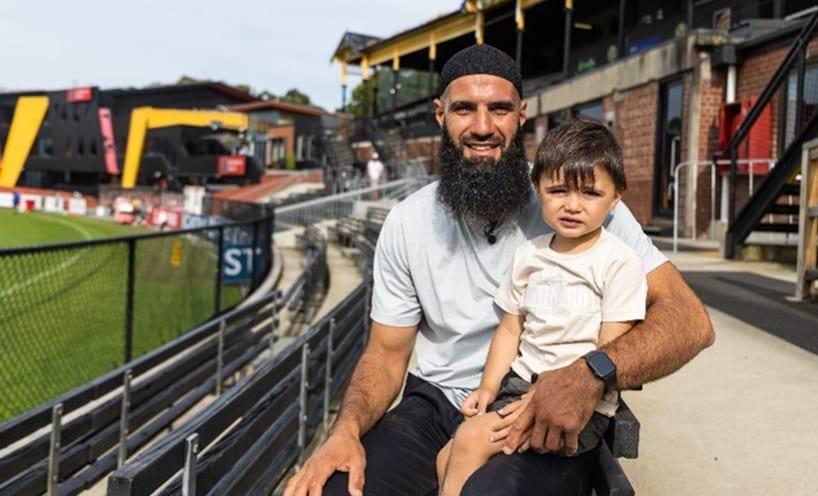
An exciting partnership to promote Free Kinder 2024 enrolments opening has kicked off between the department, former AFL player Bachar Houli and the Bachar Houli Foundation.
Bachar Houli has an authentic connection with the reform, with his son Mohamed set to start free Three-Year-Old Kinder in 2024.
The purpose of the campaign is to tell family stories to reinforce the importance of early childhood education to children of all cultures and backgrounds.
Bachar and supporting culturally and linguistically diverse (CALD) identities, such as Rana Hussein and Imam Alaa Elzokm, are respected leaders who will help spread the word about the benefits of kinder, from within their communities.
On Monday 1 May 2023, Ingrid Stitt, Minister for Early Childhood and Pre Prep, and Bachar launched the campaign at Altona North Children's Centre, in Bachar’s local area.
Campaign materials to share with your communities
The campaign video is live on the @earlychildhoodvic Instagram page. We will continue to add new content in the coming weeks.
The current suite of materials includes:
- videos (Arabic, Turkish and Dari subtitles available)
- short video clips (Arabic, Turkish and Dari subtitles available)
- behind-the-scenes stills from filming.
Consider sharing these with your networks to encourage parents of all cultures and backgrounds to enrol their children for kindergarten programs in 2024. You can also refer to our website to find translated resources you can use to communicate with CALD families about kindergarten and its benefits.
Many councils with central enrolment processes will begin allocating kindergarten places in July 2023, with families encouraged to start visiting local kinders to discuss enrolment options that work best for them.
Find out more
For further enquiries, contact the department’s Communications Division by email: ec.portfolio.communications@education.vic.gov.au
Is your service registered for the 2023 Victorian Premiers’ Reading Challenge?
Join now and encourage children to go ‘wild about reading’ and choose their books.
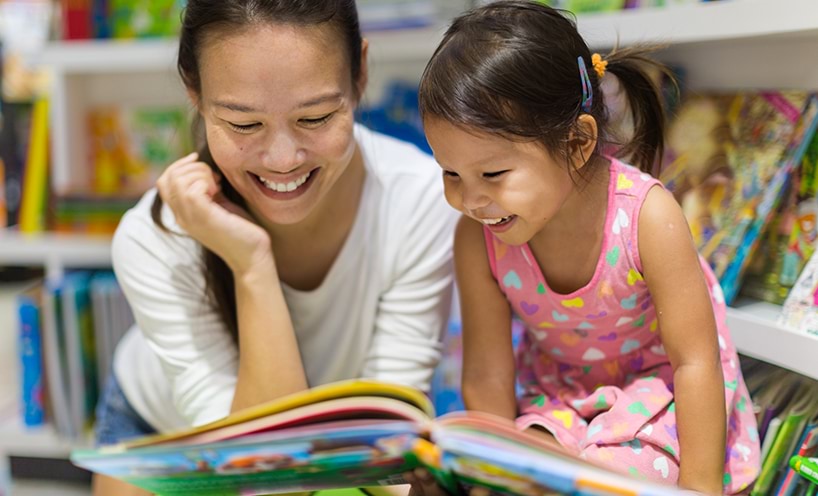
There’s still time to join the Victorian Premiers’ Reading Challenge, one of the year’s much-loved highlights for children, parents, carers and teachers across the state.
With the 2023 Challenge now underway, you can still register children from your early childhood service to go ‘wild about reading’.
As well as broadening young minds, the Challenge encourages a lifelong love of reading, teaches literacy skills and opens new horizons, by introducing children to a wide range of books to suit all interests.
Children attending early childhood services are challenged to read 40 books (with the help of an adult). Choose from thousands of books for children of all ages and abilities on the Premiers’ Reading Challenge book list.
Children who complete the Challenge will receive a certificate signed by the current premier and past Victorian state premiers, who are all fans of the initiative – and reading.
Posters and resources to help you run the Challenge are available on the tips and resources webpage.
Visit the VicPRC Facebook page to stay informed, or sign up to receive the PRC coordinator update during the Challenge.
Find out more
For more information, visit the Premiers’ Reading Challenge.
Mamamia showcases the benefits of Three-Year-Old Kindergarten
Promote the Free Kinder initiative with your community by sharing the article on social media.
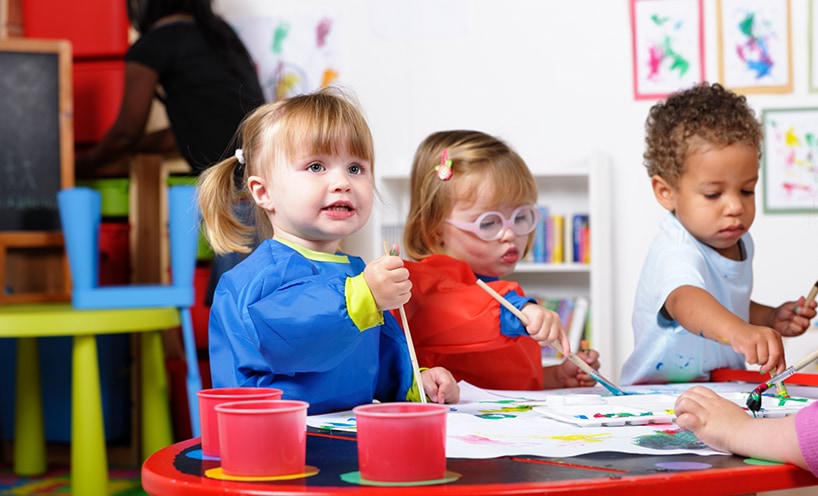
The Victorian Government’s Free Kinder initiative was in the spotlight recently in an article published on Mamamia.com.au
Mamamia is one of Australia's largest independent women's media companies and is known for covering a range of topical women's issues.
In partnership with the department, the article was developed to promote the $14 billion Best Start, Best Life reforms, including Free Kinder.
The heart-warming piece by Sharon Hunt gave readers a glimpse into 3 mothers’ experiences with Three-Year-Old Kindergarten, illustrating kinder as an exciting rite of passage in a child’s life.
The article shared their motivations for enrolling and how their child benefited from 2 years of kindergarten before school.
Kindergarten mothers’ case studies
Eleanor, a mother of 3 whose middle child, Henry, commenced in the first roll-out year of Three-Year-Old Kindergarten, discussed how 2 years of kinder helped her son build his confidence, social skills and readiness for learning.
Likewise, Jessica, whose son George attended Three-Year-Old Kindergarten in its first year and is now at school, discussed how her son grew from being highly anxious about separating from his parents to begging them to go to kinder.
As a primary school teacher, Jessica also shared her perspective on how kinder lays the groundwork for children’s schooling years.
Jessica said, ‘Socially, they also cope much better once they start school and often have the tools and confidence to ask for help when needed’.
Share on social media
We encourage early childhood education services to share the Mamamia article on social channels to encourage families to enrol their children in Three-Year-Old Kinder.
Also, remember to access the Communications toolkit for 2024 available on the Communicating about kindergarten to your community page. You can also access a Free Kinder communications pack tailored for long day care services.
These resources include suggested web, newsletter and social media text to help services promote kindergarten enrolments.
There are also social media tiles and other marketing collateral to help with this promotion.
Find out more
For more information, refer to Kindergarten – Best Start, Best Life.
For further enquiries, contact the department’s Communications Division by email: ec.portfolio.communications@education.vic.gov.au
Your kindergarten program funding and teacher requirements
Support with managing teaching changes and service hours to meet funding conditions.
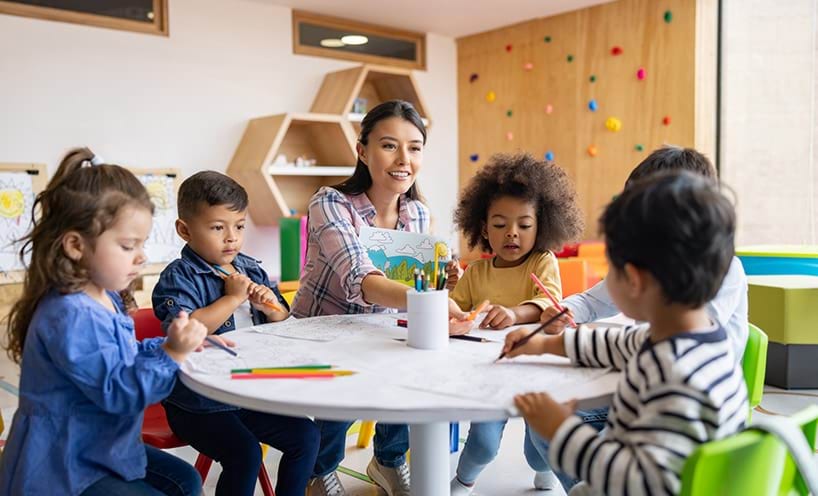
The department recognises that services are facing challenges at present in maintaining normal staffing arrangements and covering absences, and that these issues affect services’ capacity to meet kindergarten funding requirements from time to time.
In these situations, we want to work with you to explore options for continuing to meet kindergarten funding conditions and deliver a high quality of service.
Funding conditions
Under funding agreements with the department, services must provide a program delivered by a Victorian Institute of Teaching (VIT) registered, qualified early childhood teacher (ECT) for:
- 15 hours per week (or 600 hours per year) for 4-year-old children, and
- between 5 and 15 hours per week for 3-year-old children (corresponding to the number of hours of Three-Year-Old Kindergarten your service is delivering).
If your arrangements change, meaning that you may not be able to comply with these requirements for a period of time – for example, if the VIT-qualified ECT is absent for a length of time or leaves the service and is not immediately replaced – please contact your Early Childhood Improvement Branch.
There are a range of provisions that may be called on, depending on the particular situation, including interim funding for short-term periods where a teacher is not available. If services are found to have breached their funding conditions and have not notified their Early Childhood Improvement Branch within 2 weeks, this may result in implications for funding.
More information about these options is provided in the Kindergarten Funding Guide (refer to page 69).
Services regulated under the National Quality Framework are required to meet the National Regulations and may need to check with Quality Assessment and Regulation Division if a waiver is also required.
Depending on the situation, a relevant waiver approval may be required before kindergarten funding in exceptional circumstances can be considered.
Find out more
For further information, refer to the Kindergarten Funding Guide or contact Early Childhood Improvement Branch.
Early Childhood Scholarships to help people upskill and become a kindergarten teacher
Enrol to study early childhood education with the mid-year intake and secure financial support while you study.
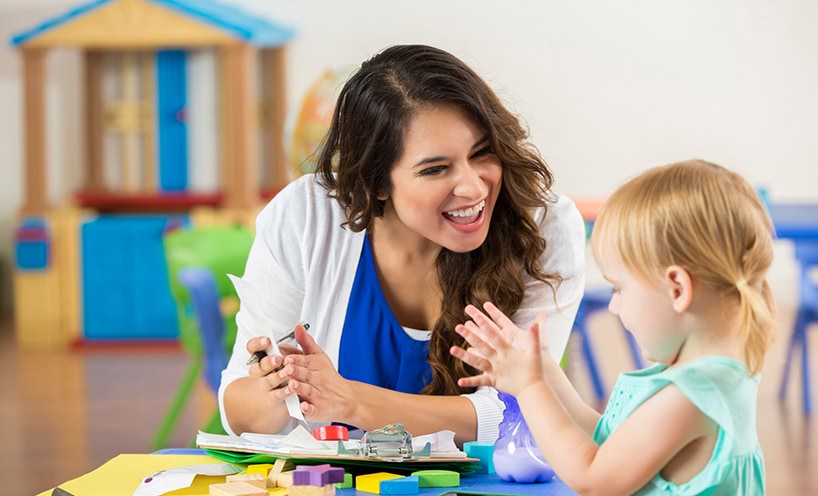
Early Childhood Scholarships are available to help people build their careers in early childhood education, without an additional financial burden.
The Early Childhood Scholarships and the Early Childhood Aboriginal pathway scholarship initiatives are part of the Victorian Government’s $370 million investment to bolster our kindergarten workforce.
Scholarships can be used to pay for course fees, living costs while you study, or other costs associated with your education.
Apply for a scholarship today.
Early Childhood Scholarship recipient, kindergarten teacher Chelsea Ford is now in her dream career. Check out her story.
Reminder: mid-year intake for early childhood education courses is open
If you’re a current educator, you can upskill and become a qualified kindergarten teacher.
Different universities have different enrolment requirements and study options, and we encourage interested people to contact their preferred university to find out more.
The department’s kindergarten webpages have information on financial support, the Innovative Initial Teacher Education program, and study options throughout Victoria.
Early Childhood Scholarships available
Early Childhood Scholarships can provide financial support to support people studying to become a kindergarten teacher. Scholarships comprise both study and employment milestone payments.
Whether someone is starting their study or already studying early childhood teaching, there may be financial support available.
Support options include:
- $25,000 towards an approved undergraduate qualification
- $12,000 towards an approved graduate diploma qualification
- $18,000 towards an approved master's qualification.
Early Childhood Aboriginal pathway scholarship
The Early Childhood Aboriginal pathway scholarship is for eligible Aboriginal people wanting to become a kindergarten teacher or educator. These scholarships also comprise both study and employment milestone payments.
Support options include:
- $34,000 towards an approved undergraduate qualification
- $16,000 towards an approved graduate diploma qualification
- $24,000 towards an approved master’s qualification
- $2,500 towards an approved early childhood Certificate III qualification
- $5,000 towards an approved early childhood diploma qualification.
Study milestone payments are not available to those studying to become an educator through the Free TAFE initiative, however, students may be eligible for employment milestone payments.
Find out more
For more information, refer to:
- the department’s kindergarten webpages
- financial support to study and work in early childhood.
For further enquiries, contact the Early Childhood Scholarships team:
- phone: 1300 161 396
- email: financial.support@education.vic.gov.au